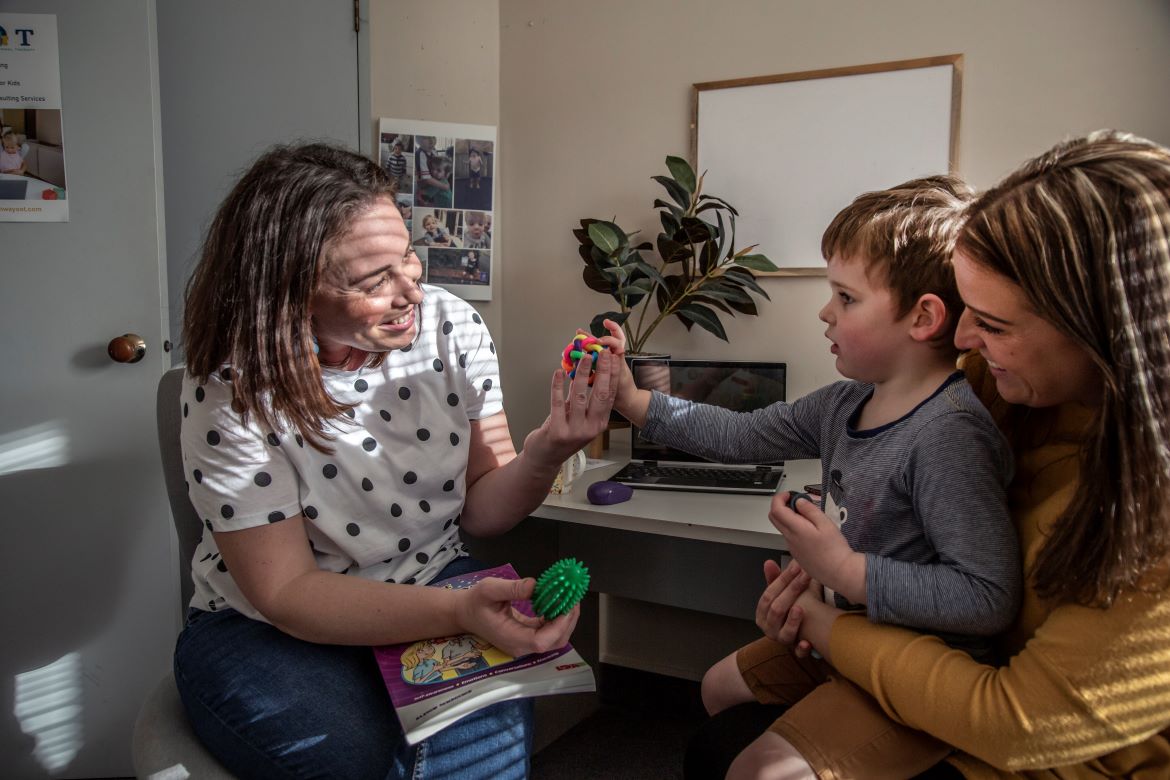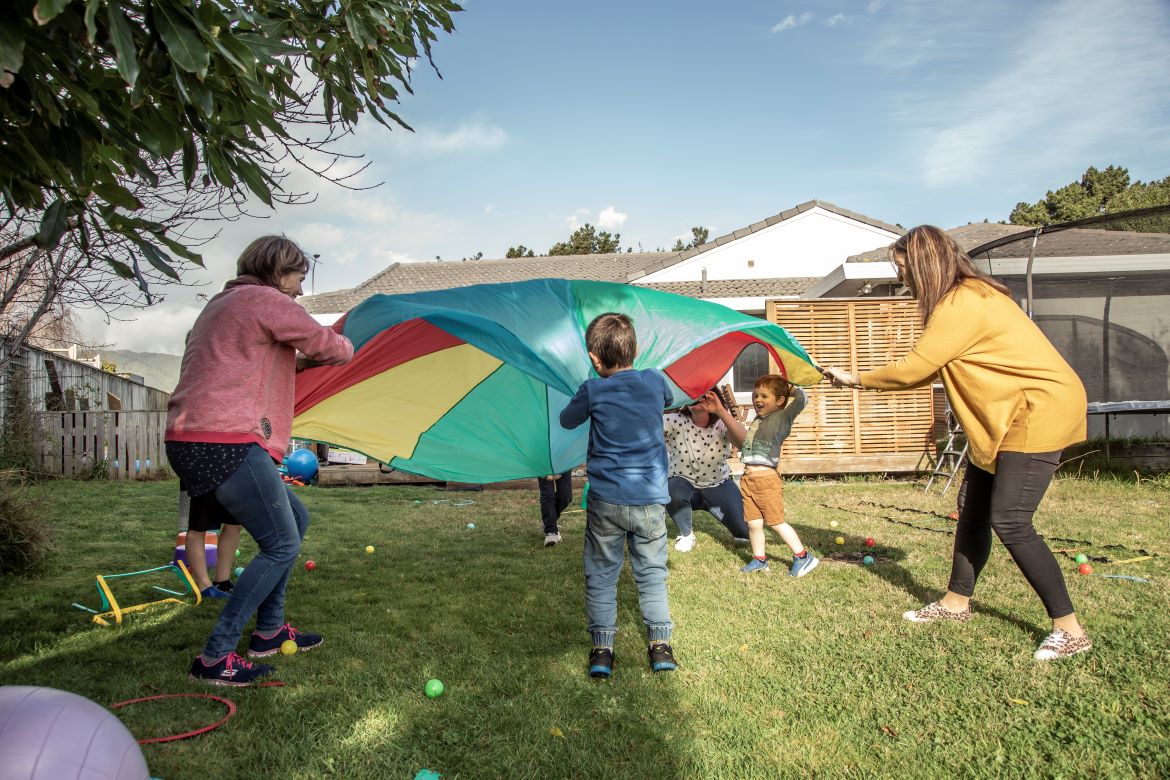Yin and Yang: How do you balance work and family?
Outside of meeting the need for OT services in my community, my deep commitment to my family was one of the reasons I jumped into building my own business. I have a young family and wanted to be flexible to meet their needs. Being my own boss has given me the opportunity to maintain a more part-time model while extending my reach. This has led me to explore other options for offering online services as a way to have more impact without having to sacrifice all my time.
Working in my business and navigating COVID with my family has reaffirmed the value of taking care of myself. Occupational therapy itself offers a powerful framework for living a balanced life and understanding how different parts of life are connected. For me, work and family are quite interconnected. Taking care of the different elements of myself – my mind, my work, and my family – helps me to show up better in the other areas.
It’s important to prioritise walks, time in nature, and self-care in order to ultimately help me be more present to my kids and husband. And really, my work is joyful for me. It just flows and feels positive.

The Drive: What challenges have you overcome?
Really, the biggest challenge has been and continues to be limited funding for families to access private therapy. A family can have some really significant needs and still not qualify for public health services. And not all families have the money for private therapy. So, I’ve worked to overcome that by reimagining how I deliver therapy so that it can be more cost-effective for families. This has meant focusing more on parent education, then they can implement the changes without having to pay for private treatment sessions each week.
For better or worse: What are the pros and cons of running your own business?
I’m so thankful for the many positives that have come with running Sensory Pathways OT. There is a great freedom that comes from running my own business. I choose my hours and my schedule in a way feels right for prioritising my family. It’s great to have autonomy over what I do and feel the joy of creating something that is mine. Because of this freedom, I fulfilled my vision of offering occupational therapy in a less clinical setting, as a trusted member of the community.
However, that doesn’t mean that there aren’t some downsides. It’s hard to carry all the responsibilities and learn how to build a team. Being responsible for selecting new ideas and making financial decisions is hard. It’s been a big learning curve to figure out how to balance my clinical time with the other aspects of growing and running a business.

Hopes and Dreams: What next?
My dreams for the future are focused on addressing some of the biggest problems I see: lack of pediatric occupational services and finding ways for families to be able to afford services. That continues to encourage me to think creatively about how to provide services differently, improving access in a cost-effective way.
I’m developing online courses for parents or other professionals since we know that parent education makes such a big difference in the lives of parents. Also, working on launching a membership community for parents around disability, trauma, and sensory and emotional regulation.
I’m also really excited about starting Friendship Clubs on the Kapiti Coast which would be social skills play-based groups for school-age children. It’s all about providing opportunities for social and play skills in a context that supports their needs. These groups will be a great way to foster emotional and social skills, especially for kids who struggle to participate in sports or on the playground. Additionally, I would also like to meet the growing need for early intervention services for pre-school age children with autism and learning and social delays through play-based groups that help children develop and build language and play skills. An environment of care and support for parents within these groups is also an essential focus within this work.
Out of challenging situations, comes a lot of learning and growth. I’m excited to see how the lessons of 2020 will ultimately provide better insights and tools for using pediatric occupational therapy to support children with mental health challenges within New Zealand.
Visit the Sensory Pathways Occupational Therapy website to learn more about the amazing support and services they offer. You can also join their supportive communities on Facebook and Instagram.










